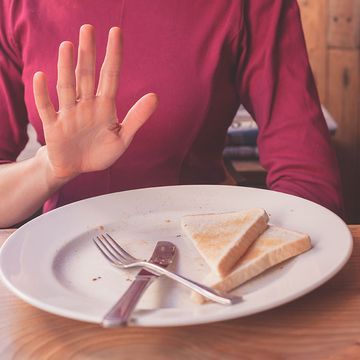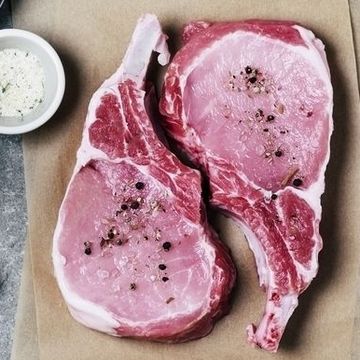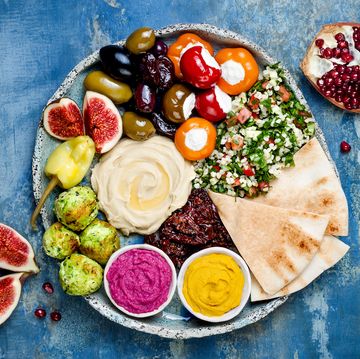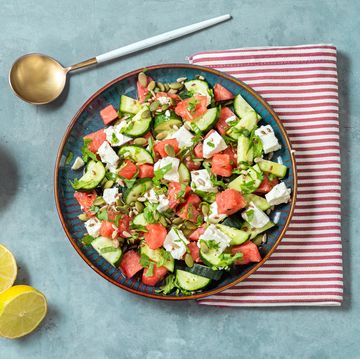Intermittent fasting has been a buzzy topic for years, with some people swearing by it for weight loss and overall health. While there are different forms of intermittent fasting, there’s one in particular that’s gotten a lot of attention: The 5:2 fasting diet.
The 5:2 fasting diet “based off of the research with rats and yeast of cell biologist Valter Longo,” explains Gina Keatley, a certified dietitian-nutritionist practicing in New York City. Longo has done several studies on this eating plan and found links between 5:2 fasting and a range of health benefits (more on that in a moment).
But what is the 5:2 fasting diet and how does this work? Here’s what you need to know.
What is the 5:2 fasting diet?
The 5:2 fasting diet is a form of intermittent fasting where you fast for two days and eat normally for five, explains Sonya Angelone, R.D., a spokeswoman for the Academy of Nutrition and Dietetics. You don’t have to live on water and air on fasting days—you just have very restricted calorie intakes, she says.
“Calories are limited to 500 per day for women and 600 calories per day for men,” Angelone says. Beyond that, you set the rules. “Officially, it doesn't matter which two days you fast, but the idea is that you want to have one non-fasting day in between,” says Jessica Cording, R.D., author of The Little Book of Game-Changers. “It’s not recommended to do both fasting days in row.”
Here’s an example: You could do a 500-calorie fasting day on Monday and Thursday, and then eat normally on Tuesday, Wednesday, Friday, Saturday, and Sunday.
What can you eat on a 5:2 fasting diet?
It’s generally recommended that you have a Mediterranean-style diet on the non-fasting days, says Keri Gans, R.D., author of The Small Change Diet. But not everyone actually does that "it seems many people simply eat whatever they want,” Gans says.
Cording recommends focusing on nutrient-dense foods and heathy fats like avocados, nuts, and seeds, along with a variety of protein sources, like fish and lean meats. “If you're having 500 calories on fasting days but it's from Sour Patch Kids, you will have a very different experience than someone eating avocados and healthy fats,” she says.
Can you lose weight on a 5:2 fasting diet?
It’s possible to lose weight on a 5:2 fasting diet, but it really depends on what you eat on your non-fasting days, says Cording. If you burn more calories than you take in overall, you’ll lose weight, she says. But, if you end up overeating on your non-fasting days, you won’t.
“People also tend to gain the weight back when they stop doing a fasting diet like this,” Cording says.
What are the pros and cons of a 5:2 fasting diet?
There is some animal research to suggest the 5:2 fasting diet can have health benefits. “In animals and yeast cell studies, there has been an increase in lifespan and a decrease in cancers,” Keatley points out. People can also feel more “in control” of their diet “by having a plan,” she says.
“This diet is simple to follow and you don’t have to measure portions sizes or count calories which can be cumbersome,” Angelone says. “The fasting days are flexible in terms of what and when you can eat. Also, most foods are acceptable on the 5:2 diet [and] you can choose which days to fast.”
If you’re able to eat normally on non-fasting days, you should lose weight, Gans points out. “If done accurately, you will be restricting calories that will ultimately lead to weight loss,” she says.
But this diet has drawbacks, too. A major one is that you have to severely restrict calories on certain days. “On the fasting days, due to lack of adequate calories, you will most likely be tired, hungry, irritable, and weak,” Gans says.
It’s also “very difficult” to just have 500 to 600 calories on a day, Angelone says. And, since you can technically eat what you want on non-fasting days, you’re not guaranteed to lose weight, she says.
Cording cautions that people with a history of disordered eating should not try the 5:2 fasting diet. “This can be a slippery slope,” she says.
Overall, nutrition experts aren’t necessarily into the idea of the 5:2 diet. “The low calorie days are very restrictive and can be hard to follow,” Angelone says.













